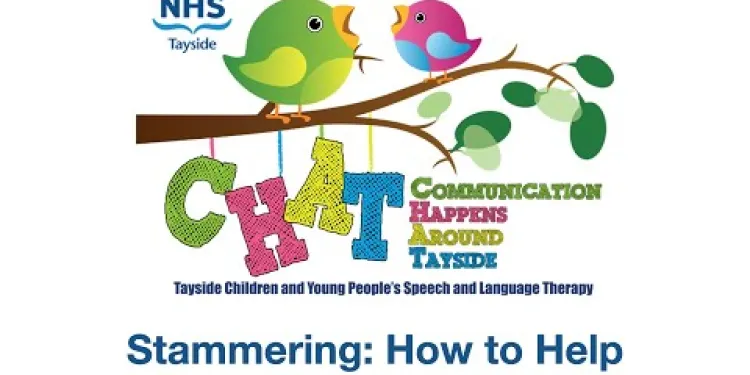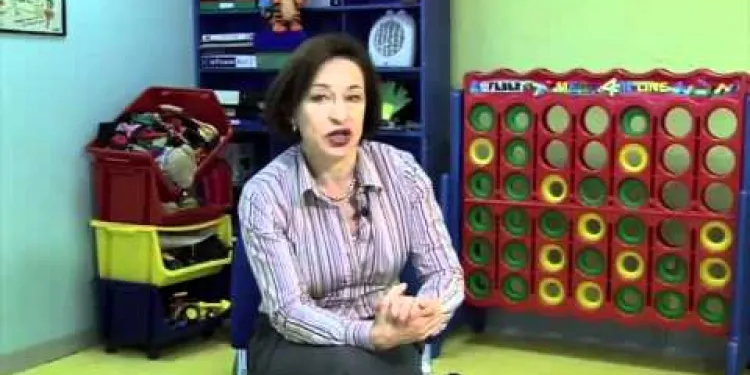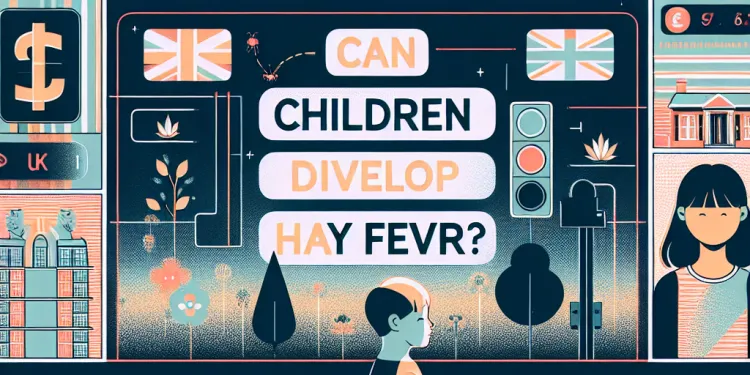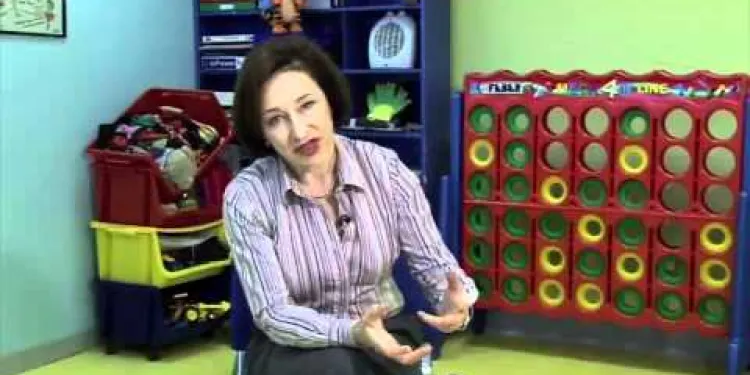Find Help
More Items From Ergsy search
-

Why do some children stammer?
Relevance: 100%
-

Practical strategies to support young children who stammer
Relevance: 88%
-

Stammering: myths about the cause of stammering
Relevance: 86%
-

Stammering myth 4: You should ignore a child's stammer
Relevance: 82%
-

My Stammering Child
Relevance: 79%
-

Stammering: How to Help
Relevance: 74%
-

Giving Voice - Stammer and Fluency Problems
Relevance: 73%
-

Adam's story on stammering - Therapy
Relevance: 70%
-

Will's story on having therapy - Stammering
Relevance: 68%
-

I don’t need to be fixed – what I wish the world understood about stammering
Relevance: 64%
-

Who are SEND children?
Relevance: 34%
-

What are SEND children?
Relevance: 34%
-

Is Baxdrostat suitable for children?
Relevance: 34%
-

What is lupus in children?
Relevance: 33%
-

Lupus in children | NHS
Relevance: 33%
-

Children's Vaccination Schedule
Relevance: 33%
-

What causes lupus in children?
Relevance: 32%
-

Is tooth decay common in children?
Relevance: 32%
-

Are there specific mobility equipment for children?
Relevance: 32%
-

Can children use Mounjaro?
Relevance: 32%
-

Can children outgrow asthma?
Relevance: 32%
-

Children With Co-ordination Difficulties and Dyspraxia
Relevance: 32%
-

Understanding Mental Health in Children
Relevance: 32%
-

Can Wegovy be used by children?
Relevance: 31%
-

Can defibrillators be used on children?
Relevance: 31%
-

Dyspraxia Children: How to Help
Relevance: 31%
-

How is lupus diagnosed in children?
Relevance: 31%
-

Do groomers target children with specific vulnerabilities?
Relevance: 30%
-

What are the common symptoms of lupus in children?
Relevance: 30%
-

Can children develop hay fever?
Relevance: 30%
-

Can children have sleep apnea?
Relevance: 30%
-

Can children develop Crohn's disease?
Relevance: 30%
-

How is progress measured for SEND children?
Relevance: 30%
-

Do SEND children attend mainstream schools?
Relevance: 30%
-

Can Wegovy tablets be used for children?
Relevance: 30%
-

Do children need a separate passport to travel to the EU?
Relevance: 30%
-

Can children get nettle rash?
Relevance: 29%
-

Are children more affected by new variants of COVID?
Relevance: 29%
-

Can children get NHS dentist appointments?
Relevance: 29%
-

Helping Children With Co-ordination Difficulties
Relevance: 29%
Why Do Some Children Stammer?
Understanding Stammering
Stammering, also known as stuttering, is a speech disorder characterised by repetitions, prolongations, or blocks that disrupt the natural flow of speech. This can make verbal communication challenging for children, affecting their confidence and social interactions. Stammering is a relatively common issue affecting approximately 5% of children at some point in their early speech development.Causes of Stammering
There isn't a single cause for stammering; rather, it is usually the result of a combination of factors. These can be broadly categorised into genetic, developmental, neurophysiological, and environmental factors.Genetic Factors
Research has shown that stammering often runs in families, suggesting a genetic component. If a child has a close family member who stammers, they are more likely to develop the condition themselves.Developmental Factors
Stammering often arises during the early stages of a child's speech and language acquisition. The rapid development of speech and language skills between the ages of 2 and 6 can sometimes lead to periods of non-fluent speech, particularly as children learn to string words together in more complex ways.Neurophysiological Factors
Studies using brain imaging techniques have found that people who stammer may process speech and language differently compared to those who do not. There may be anomalies in the areas of the brain responsible for language production and motor control of speech.Environmental Factors
While stammering is not caused by a child's environment per se, factors such as family dynamics, speech and language demands, and stress can exacerbate the condition. For instance, a high-pressure environment or frequent interruptions while speaking can make stammering more pronounced.Psychological Impact
Stammering can significantly impact a child's psychological well-being. Children who stammer might feel frustrated or embarrassed, potentially leading to anxiety and avoidance of speaking situations. Early intervention and positive reinforcement from family and educators can play a crucial role in mitigating these effects.Seeking Help
If parents or guardians notice persistent stammering that seems to cause distress or impact a child's communication, it is advisable to consult a speech and language therapist. In the UK, resources such as the NHS and organisations like the British Stammering Association (STAMMA) offer support and guidance for families dealing with stammering.Conclusion
Understanding the multifaceted causes of stammering in children is essential in helping them manage and overcome the condition. With appropriate support and intervention, many children who stammer can go on to enjoy fluent and confident communication.Why Do Some Children Stammer?
Understanding Stammering
Stammering, or stuttering, happens when a child has trouble speaking smoothly. They might repeat sounds, make sounds longer, or get stuck when talking. This can make it hard for them to talk with others. It can also make them feel shy or nervous. About 5 out of 100 children might stammer at some point when they are learning to speak.Causes of Stammering
Stammering does not have just one cause. It usually happens because of many things working together. These can include things like genes, development, brain processes, and the environment around the child.Genetic Factors
Stammering often runs in families. This means if a child's family member stammers, the child might stammer too.Developmental Factors
Stammering often starts when a child is learning to speak. This happens between the ages of 2 and 6. At this age, children are learning to make sentences. Sometimes their speech is not smooth during this time.Neurophysiological Factors
Scientists have found that children who stammer might use their brains differently when speaking. This affects the parts of the brain that control making speech and movement of the mouth.Environmental Factors
While the environment does not cause stammering, it can make it worse. Things like family tensions, high expectations, and stress can make a child stammer more. For example, if a child is interrupted a lot while speaking, it might make stammering worse.Psychological Impact
Stammering can make children feel sad or embarrassed. They may feel anxious and try to avoid talking. It is important to help children feel good about speaking. Families and teachers can support them by being patient and positive.Seeking Help
If a child's stammering does not go away or causes stress, it is a good idea to talk to a speech therapist. In the UK, places like the NHS and the British Stammering Association (STAMMA) can help children and their families.Conclusion
It is important to know why children stammer to help them. With the right help, many children who stammer can learn to speak smoothly and confidently.Frequently Asked Questions
What is stammering?
Stammering, also known as stuttering, is a speech disorder where the flow of speech is interrupted by involuntary repetitions, prolongations, or blocks of sounds, syllables, or words.
At what age does stammering typically start?
Stammering usually begins in early childhood, between the ages of 2 and 5 years, when children are developing their speech and language skills.
What causes children to stammer?
The exact cause of stammering is unknown, but it is believed to be due to a combination of genetic, neurological, and environmental factors.
Is stammering hereditary?
Stammering can run in families, suggesting a genetic link. If a child has a family member who stammers, they are more likely to stammer as well.
Can stammering be caused by anxiety or stress?
While anxiety and stress do not cause stammering, they can exacerbate it. Children may stammer more when they are nervous or under pressure.
How can parents help a child who stammers?
Parents can help by being patient, not interrupting, speaking slowly, and providing a calm and supportive environment. Professional speech and language therapy can also be beneficial.
Is there a cure for stammering?
There is no cure for stammering, but many children can significantly improve their speech with the help of speech and language therapy and supportive techniques.
Should a child who stammers be encouraged to talk more or less?
Children who stammer should be encouraged to talk in a relaxed and supportive environment without pressure. Avoiding forced or hurried speech can be helpful.
Does stammering affect a child's intelligence?
Stammering does not affect a child's intelligence. It is solely a speech disorder and does not impact cognitive abilities.
Are boys or girls more likely to stammer?
Boys are more likely to stammer than girls. The ratio is approximately 4:1, with boys being more commonly affected.
Can stammering resolve on its own?
In some cases, stammering can resolve on its own, particularly with young children. However, early intervention can provide additional support and improve outcomes.
What role do schools play in helping children who stammer?
Schools can provide a supportive environment by being understanding, allowing extra time for speaking, and working with parents and speech therapists to support the child's communication needs.
How can peers support a child who stammers?
Peers can support a child who stammers by showing patience, not teasing, and listening attentively. Being kind and inclusive helps the child feel more comfortable.
Can speech therapy help children who stammer?
Yes, speech therapy is often very effective in helping children who stammer. A speech and language therapist can provide strategies and exercises to improve speech fluency.
What should parents avoid doing if their child stammers?
Parents should avoid interrupting, finishing sentences for the child, or showing frustration. These actions can increase the child's anxiety and worsen the stammer.
What is stammering?
Stammering means having trouble speaking smoothly. It's when words get stuck or repeated. People might pause a lot when they try to talk.
Here are some things that can help:
- Speak slowly and take your time.
- Try to stay calm and relaxed.
- Practice speaking with a friend or family member.
If you need more help, talk to a speech therapist. They can teach you ways to make talking easier.
Stammering, or stuttering, is when someone has trouble talking smoothly. It means they might repeat sounds or words, make sounds longer, or get stuck and can't make a sound. This happens without the person trying to do it.
When do people usually start to stammer?
Most people start to stammer when they are little kids. This can happen when they are between 2 and 5 years old.
Helpful tools and tips:
- Talk slowly and calmly.
- Be patient and listen carefully.
- Let them finish speaking without interrupting.
- It can help to look at their eyes and smile.
Children often start stuttering when they are young, around 2 to 5 years old. This is when they are learning to talk and use words.
Why do some children stammer?
Stammering means having trouble speaking smoothly. Here are some reasons why children might stammer:
- Family: If someone in the family stammers, a child might too.
- Brain: The speech part of the brain may work differently.
- Growing: As children learn to talk, they might stammer for a while.
- Feelings: Being nervous or excited can make stammering worse.
If a child stammers, you can:
- Be patient and listen carefully.
- Speak slowly to help them feel calm.
- Encourage them to talk and not worry about mistakes.
- Talk to a speech therapist for more help.
We don't really know what makes people stammer. But we think it might happen because of a mix of things like genes, how the brain works, and things around us.
If you find reading hard, try using tools like audiobooks or ask someone to read with you. It's okay to take your time!
Can you be born with stammering?
Some people have trouble speaking smoothly. This is called stammering.
Stammering can run in families. This means if your mom or dad stammer, you might too.
If you or someone you know has a stammer, it can help to talk to a speech therapist. They can teach you ways to speak more easily.
There are also apps and tools that can help practice speaking.
Stammering can be passed down in families. This means it might be in your genes. If someone in your family stammers, you might stammer too.
Can stammering happen because of worry or stress?
Sometimes, people may stammer more when they feel worried or stressed.
If you or someone you know stammers, you can try:
- Talking slowly and staying calm.
- Practicing breathing exercises to relax.
- Using apps or tools made to help with stammering.
- Talking to a speech therapist for extra help.
Feeling worried or stressed does not make someone start to stammer, but it can make stammering worse. Kids might stammer more when they feel nervous or have too much to do.
How can parents help a child who stammers?
Here are some ways parents can help a child who stammers:
- Listen carefully. Give your child time to speak. Don't rush them.
- Be patient. Stay calm when your child stammers.
- Speak slowly and clearly to your child.
- Show understanding. Let your child know it is okay to stammer.
- Play games that help talking, like taking turns in speaking.
- Read stories together. This can be fun and helpful.
- Let your child finish their words. Don't interrupt or finish sentences for them.
- Use pictures and drawings to help understand and communicate.
- Encourage your child with praise when they speak well.
Every child is special. It's important to support and love them.
Parents can help by being patient. Don't interrupt. Speak slowly. Make sure the place is calm and supportive. Seeing a special speech and language helper can also be good.
Can stammering be fixed?
Some people have trouble speaking and might stammer. There is no quick fix, but there are ways to help.
Speech therapy can help make speaking easier. Special devices and apps can also help.
If you stammer, talking to a speech therapist can be a good idea. They can help you find the best ways to speak more smoothly.
We cannot completely stop stammering, but children can get a lot better at talking with the help of speech therapy and other helpful tools.
Should a child who stutters talk more or less?
It is good to help a child who stutters to talk.
Be patient and listen carefully.
Encourage them to speak slowly.
Use games to make talking fun.
Praise them for speaking.
If needed, talk to a speech therapist for help.
When children who stutter talk, they should be in a calm place. We should not make them talk fast or feel stressed. Let them talk in their own time.
Does stammering make a child less smart?
No, stammering does not make a child less smart. A stammer is just when someone repeats or gets stuck on sounds and words. It does not change how clever they are.
If a child stammers, there are things that can help:
- Be patient and let them finish speaking.
- Don’t rush or interrupt them.
- Let them know it is okay to take their time.
- Help them feel relaxed and supported.
Stammering does not make a child less clever. It is just a speech problem and does not change how a child thinks.
Do boys or girls stammer more?
Sometimes people find it hard to say words. This is called stammering. Do you think boys or girls stammer more?
Here is a tip to help if you or a friend stammers:
- Take deep breaths to stay calm.
- Try speaking slowly.
- Practice speaking with a trusted friend or adult.
Boys stammer more often than girls. For every 4 boys who stammer, there's 1 girl who does.
Can stammering get better by itself?
Sometimes, people who stammer stop doing it without help. But not everyone.
Talking slowly and taking deep breaths can help.
If you stammer, it's good to talk to a speech therapist. They are experts who can help.
Sometimes, stammering can go away by itself, especially in young children. But getting help early can make things better and easier.
How do schools help children who stutter?
Schools can help children by being kind and giving them more time to talk. They can also work with parents and speech therapists to help the child with talking.
How can friends help a child who stutters?
Friends can be kind and patient. They can let the child take their time to talk. It is important to listen carefully and not interrupt.
Friends can also use kind words. They can say, "It is okay, take your time." This helps the child feel comfortable.
Playing games and doing fun activities together can make the child feel happy and supported.
Friends can learn about stuttering too. This helps them understand better. They can use books or watch videos with an adult.
Teachers and parents can help friends learn how to be supportive. They can talk about ways to be good listeners and kind friends.
Friends can help a child who stutters by being patient, not making fun, and listening carefully. Being kind and including them makes the child feel happier.
Can speech therapy help children who stutter?
Does your child repeat sounds or words when talking? Speech therapy can help. A speech therapist is a person who helps people speak more clearly. They can teach your child ways to stop stuttering. This can make talking easier and more fun. Here are some things that might help:
- Practicing speaking slowly.
- Playing speaking games.
- Using a mirror to watch how we speak.
Speech therapy can make a big difference. It can help your child feel more confident when they speak.
Yes, speech therapy can really help kids who stutter when they talk. A speech and language therapist can teach ways and exercises to make speaking easier and smoother.
What can parents do to help if their child stutters?
Parents should try not to interrupt or finish the child's sentences. They should stay calm and not show they are upset. This can help the child feel less worried and may make the stammer less bad.
Useful Links
This website offers general information and is not a substitute for professional advice.
Always seek guidance from qualified professionals.
If you have any medical concerns or need urgent help, contact a healthcare professional or emergency services immediately.
Some of this content was generated with AI assistance. We’ve done our best to keep it accurate, helpful, and human-friendly.
- Ergsy carfully checks the information in the videos we provide here.
- Videos shown by Youtube after a video has completed, have NOT been reviewed by ERGSY.
- To view, click the arrow in centre of video.
- Most of the videos you find here will have subtitles and/or closed captions available.
- You may need to turn these on, and choose your preferred language.
- Go to the video you'd like to watch.
- If closed captions (CC) are available, settings will be visible on the bottom right of the video player.
- To turn on Captions, click settings .
- To turn off Captions, click settings again.
More Items From Ergsy search
-

Why do some children stammer?
Relevance: 100%
-

Practical strategies to support young children who stammer
Relevance: 88%
-

Stammering: myths about the cause of stammering
Relevance: 86%
-

Stammering myth 4: You should ignore a child's stammer
Relevance: 82%
-

My Stammering Child
Relevance: 79%
-

Stammering: How to Help
Relevance: 74%
-

Giving Voice - Stammer and Fluency Problems
Relevance: 73%
-

Adam's story on stammering - Therapy
Relevance: 70%
-

Will's story on having therapy - Stammering
Relevance: 68%
-

I don’t need to be fixed – what I wish the world understood about stammering
Relevance: 64%
-

Who are SEND children?
Relevance: 34%
-

What are SEND children?
Relevance: 34%
-

Is Baxdrostat suitable for children?
Relevance: 34%
-

What is lupus in children?
Relevance: 33%
-

Lupus in children | NHS
Relevance: 33%
-

Children's Vaccination Schedule
Relevance: 33%
-

What causes lupus in children?
Relevance: 32%
-

Is tooth decay common in children?
Relevance: 32%
-

Are there specific mobility equipment for children?
Relevance: 32%
-

Can children use Mounjaro?
Relevance: 32%
-

Can children outgrow asthma?
Relevance: 32%
-

Children With Co-ordination Difficulties and Dyspraxia
Relevance: 32%
-

Understanding Mental Health in Children
Relevance: 32%
-

Can Wegovy be used by children?
Relevance: 31%
-

Can defibrillators be used on children?
Relevance: 31%
-

Dyspraxia Children: How to Help
Relevance: 31%
-

How is lupus diagnosed in children?
Relevance: 31%
-

Do groomers target children with specific vulnerabilities?
Relevance: 30%
-

What are the common symptoms of lupus in children?
Relevance: 30%
-

Can children develop hay fever?
Relevance: 30%
-

Can children have sleep apnea?
Relevance: 30%
-

Can children develop Crohn's disease?
Relevance: 30%
-

How is progress measured for SEND children?
Relevance: 30%
-

Do SEND children attend mainstream schools?
Relevance: 30%
-

Can Wegovy tablets be used for children?
Relevance: 30%
-

Do children need a separate passport to travel to the EU?
Relevance: 30%
-

Can children get nettle rash?
Relevance: 29%
-

Are children more affected by new variants of COVID?
Relevance: 29%
-

Can children get NHS dentist appointments?
Relevance: 29%
-

Helping Children With Co-ordination Difficulties
Relevance: 29%


